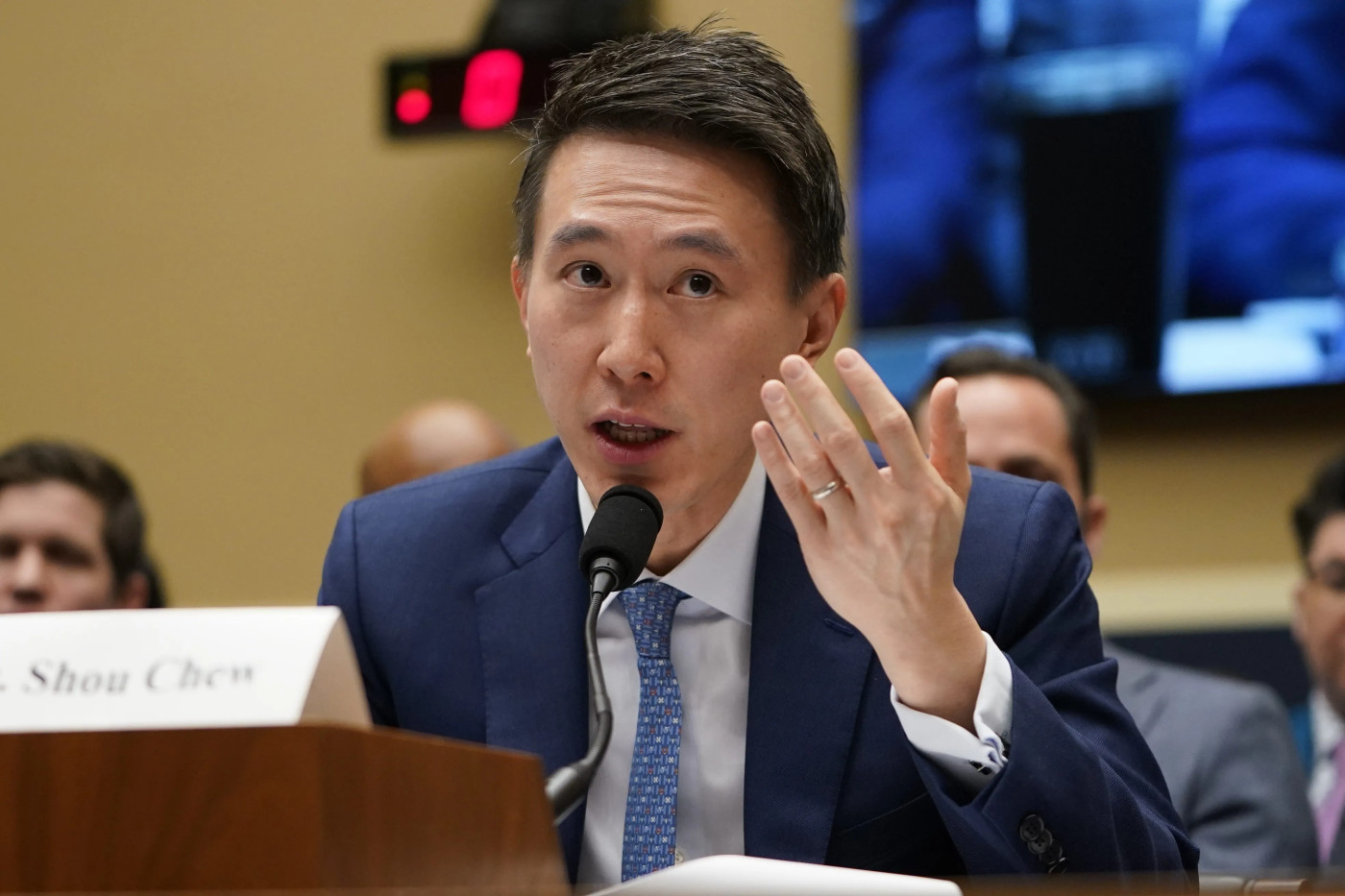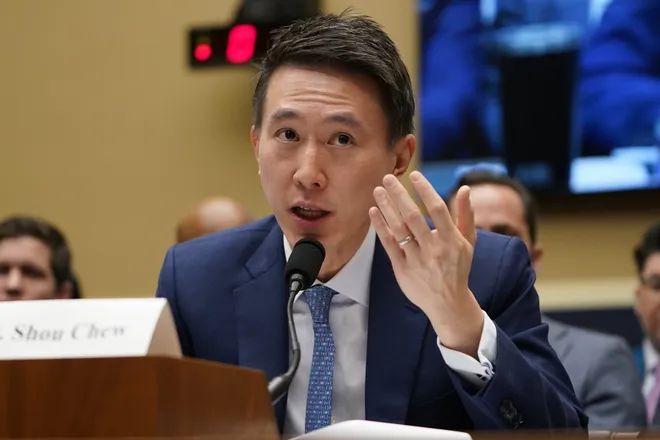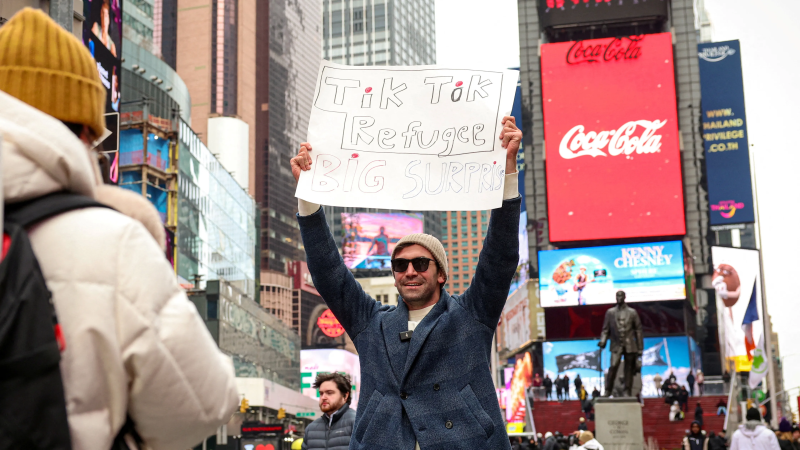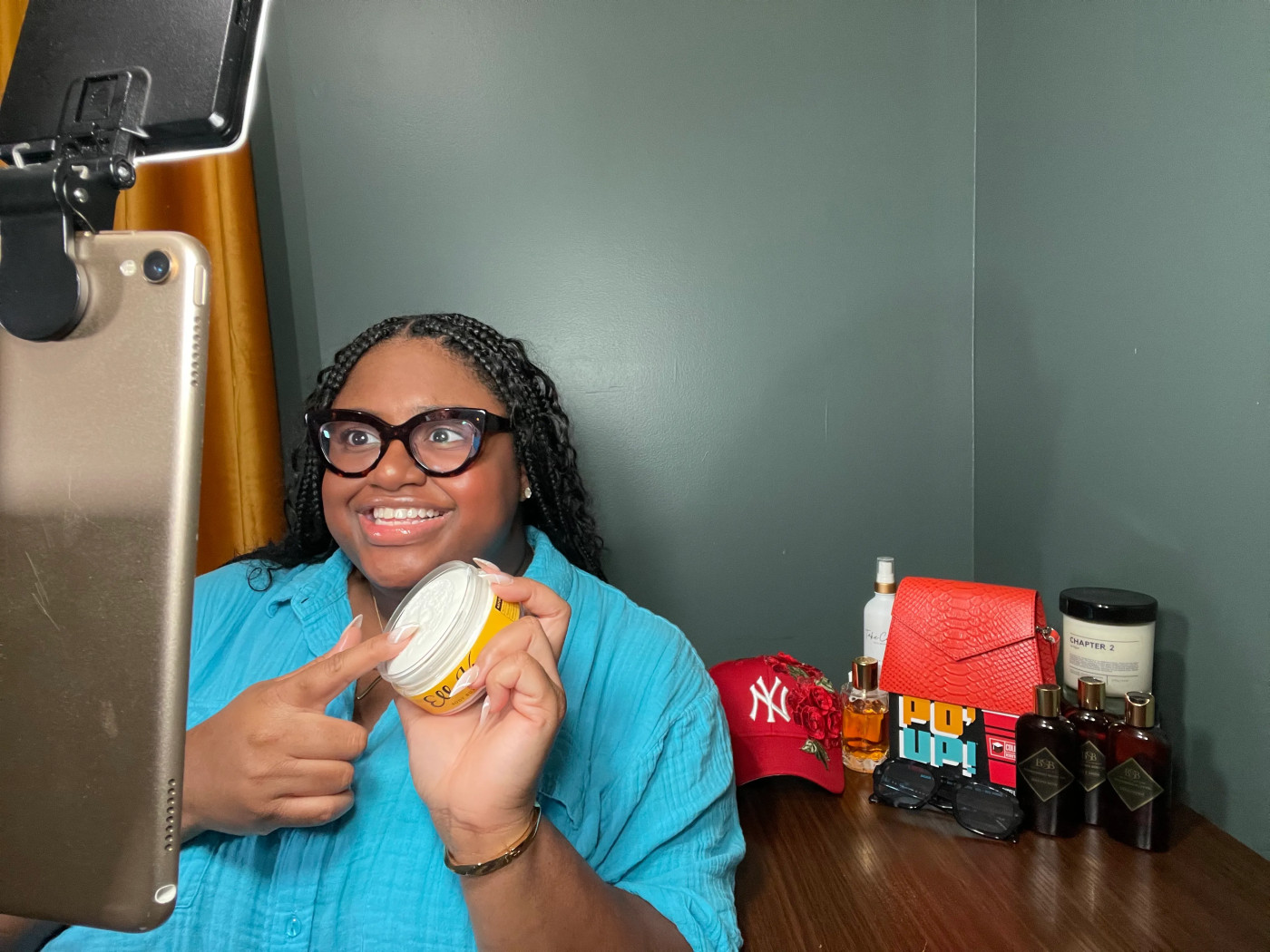
Looming TikTok ban could have consequences far beyond just the video app
- The Supreme Court upheld a law that could ban TikTok in the U.S. starting Sunday.
- U.S. social media stocks are expected to benefit if the ban goes into effect, as American users migrate to competitors.
- Several tech companies that support TikTok, including Oracle, Microsoft, and Amazon, could face financial repercussions.
The Supreme Court’s decision to uphold the looming TikTok ban may have corporate consequences far beyond the app's parent company, impacting American tech giants and the broader U.S. stock market.
With Donald Trump returning to the White House the day after the ban is set to take effect, it remains to be seen if and how the new administration will enforce the law. University of Houston law professor Nikolas Guggenberger said it will be interesting to watch how Trump will act given that he did not sign the ban into law, enforcing it will be an unpopular decision among the app’s 170 million users, and TikTok CEO Shou Zi Chew plans to attend his inauguration.
Although the company previously stated it planned to shut down in the U.S. on Sunday, in a video posted to TikTok after the Supreme Court ruling Friday, Chew thanked Trump for his commitment to "finding a solution" that keeps TikTok available in the U.S.
“We are grateful and pleased to have the support of a president who truly understands our platform, one who has used TikTok to express his own thoughts and perspectives, connecting with the world and generating more than 60 billion views of his content in the process,” Chew said. “As you know, we have been fighting to protect the constitutional right of free speech for the more than 170 million Americans who use our platform every day to connect, create, discover and achieve their dreams.”

More:Supreme Court upholds law that could ban TikTok in the U.S., leaving the matter to Trump
Enforcement will include U.S. servers dropping support for TikTok
The new administration’s decision on whether and how to enforce the ban will affect many American companies including Oracle, Apple, and Google who could face steep fines of up to $5,000 per user if they were to continue using their servers to host and support the app.
Guggenberger said the app will be removed from app stores but remain on the phones of users who previously downloaded TikTok. What the app will look like when opened is unclear. U.S. servers will most likely stop serving the company, he said, and it is uncertain to what extent the app will continue to function properly.
Without intervention, Guggenberger said "the medium to long-term result is that the app will certainly eventually become dysfunctional" because TikTok will no longer be able to distribute updates through the app store.
How is the U.S. stock market responding?
U.S. social media stocks are expected to benefit if, following the Supreme Court’s decision, a TikTok ban goes into effect on Sunday, analysts said.
The Supreme Court on Friday upheld a law that would ban TikTok if its Chinese parent ByteDance doesn’t sell it. President Joe Biden, who signed the bill into law, won’t enforce the ban and is leaving it to President-elect Donald Trump to decide how to handle the situation when he enters the White House on Monday.
TikTok lawyer Noel Francisco told the Supreme Court during a hearing last week Trump wouldn’t be able to do anything until his term begins and TikTok could go dark on Sunday, meaning the app wouldn’t be available for download, and service providers wouldn’t support it. It’s unclear what Trump would do to avoid the ban – and what is in his legal purview.
Supreme Court upholds TikTok ban:Highest court upholds law that could ban TikTok in the U.S., leaving the matter to Trump
About 170 million American TikTok users would be up for grabs, analysts estimated.

“U.S. users will probably choose apps that will provide the readiest audiences and the most similar user experiences, which would be Instagram and YouTube Shorts,” said Damian Rollison, SOCi’s director of market insights, in a note. “These platforms, and others like Snapchat that already have a strong foothold in the U.S. market, will also likely pivot to capture the TikTok user base by introducing features that mimic the TikTok user experience, something that has already been happening in a more subtle way.”
Shares of Facebook and Instagram owner Meta, and Google and YouTube parent Alphabet were up about 3% just after midday Friday. Shares of Snap, owner of Snapchat, were down more than 1%, weighed by a non-public Federal Trade Commission complaint alleging its My AI chatbot poses “risks and harms to young users,” the commission said in a statement. FTC is referring the complaint to the Department of Justice.
A Musk takeover?
Earlier reports said ByteDance was considering selling TikTok to X owner Elon Musk.
“Given the strong and growing alliance between Trump and Musk, this is not a total shock route as behind the scenes the Trump White House is looking at alternatives right out of the gates starting next week to have some time to find a solution/deal,” wrote Wedbush Analyst Dan Ives in a report. “Beijing/Xi Jinping has a strong relationship with Musk so there would be added comfort in this deal/potential partnership to avoid a TikTok ban.”
What does a TikTok ban look like?
A Trump adviser said the President-elect would stop the ban, noting the law allows a 90-day extension for ByteDance if significant progress has been made towards a sale. However, TikTok lawyer Noel Francisco told the Supreme Court in a hearing Jan. 10 that Trump wouldn’t be able to do anything until Monday and TikTok could go dark temporarily, starting Sunday, meaning the app wouldn’t be available for download and service providers wouldn’t support it.
The company has previously said that it would shut down the app, with those who try to open it seeing a pop-up message that steers them to a website with information regarding the ban, according to Reuters, which cited sources who requested anonymity because the proposed actions were not public.
Reports said TikTok would also enable users to download personal information to maintain a record of their data.
These companies that support TikTok could feel a pinch
Other tech giants could potentially gain advertising dollars as well as users if the ban takes hold, some analysts say.
"If the U.S. Supreme Court upholds the TikTok ban, lest it divest from ByteDance, the decision will most likely benefit Meta, YouTube, Snap, and to a lesser degree other digital media platforms, as advertising dollars will be diverted to one or more platforms,'' Emile El Nems, Vice President for Moody’s Ratings, said in a note prior to the high court's ruling. "If the company does pursue a sale, the pool of buyers will be limited by the valuation of the company and antitrust concerns of Big Tech.”
While social media companies competing to win TikTok users could potentially gain, companies that support the Chinese app could suffer.
Oracle, for example, provides cloud infrastructure for TikTok. In the company’s annual report for the fiscal year ended May 31, the database giant said “if we are unable to provide those services to TikTok, and if we cannot redeploy that capacity in a timely manner, our revenues and profits would be adversely impacted.”
Software giant Microsoft’s artificial intelligence business has also been a big winner from TikTok. Microsoft’s cloud AI business got 25% of its revenue from the Chinese social media platform, according to media reports last summer.
Online retailer Amazon could come under pressure if a TikTok ban lasts. Amazon last September had to answer Congressional questions about its deepening ties to the Chinese company in a closed-door meeting, according to Bloomberg.
The companies’ partnership allows TikTok users to buy products on Amazon without ever leaving the TikTok app, directly through ads they see in their TikTok feeds. TikTok users also can link their Amazon and TikTok accounts to expedite the process and remain synced for later purchases.
Free Speech or surveillance threat?
Guggenberger joined a group of free speech advocates in signing an amicus brief in the Supreme Court case arguing the court should strike down the law. He said its decision Friday “almost exclusively” focused on the threat TikTok presents as it relates to surveillance and data flows, rather than the concern lawmakers had about the app – that it might have been used to spread propaganda.
“It’s a really substantive departure from anything we’ve seen in regulation so far,” Guggenberger told USA TODAY. “We’ve seen these kinds of ownership restrictions in other media, so TV and radio. We really have not seen it as it relates to anything on the internet.”

